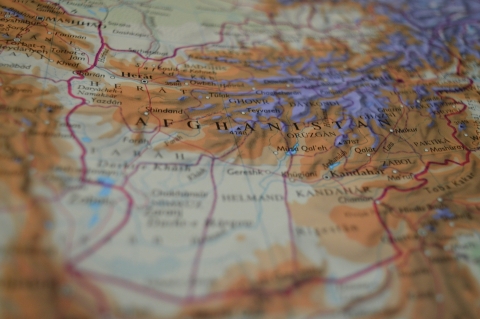
As the Taliban take control of Afghanistan, hundreds of journalists – some foreign, but mostly local reporters, many of whom have worked with international media outlets for the past 20 years – could face grave danger.
While evacuation efforts continue, some Afghan journalists have been talking with foreign media, asking not to be identified for safety reasons. As IJNet reported last week, many of them are scared, hoping to obtain a visa to flee the country and seek asylum in another.
According to the Committee to Protect Journalists, however, few of them have been able to board a flight to another country to begin their visa request processing and the vast majority remain in hiding.
Others, such as the local staff who covered the crisis for large U.S. outlets like The Washington Post, The New York Times and The Wall Street Journal, waited at the airport in Kabul. Including their families, the Post said Monday, the group numbered 204 people.
“For the past twenty years, brave Afghan colleagues have worked tirelessly to help The New York Times, The Washington Post and The Wall Street Journal share news and information from the region with the global public,” wrote the publishers of the three news organizations in a joint statement to President Joe Biden. “Now, those colleagues and their families are trapped in Kabul, their lives in peril.”
CPJ said it has registered and vetted the cases of nearly 300 journalists attempting to reach safety, with hundreds more cases under review. Other international organizations are also working to assist reporters on the ground, from financial support to evacuation efforts.
Below is a list with suggestions on how to support them. IJNet will update it with new resources as they become available:
- CPJ has already registered and vetted high-priority cases of Afghan journalists facing clear and imminent threat, many of them women. It cannot provide visas, but receives additional email requests for assistance at emergencies@cpj.org. CPJ doesn’t have a donate button specifically for Afghanistan, but people can submit online donations to the organization here.
- The Coalition for Women in Journalism is assisting Afghan journalists seeking refuge, regardless of their gender. They can get in touch at this email address: safety@womeninjournalism.org.
- The International Women's Media Foundation is accepting donations to support women journalists in Afghanistan.
- International Media Support’s partner, Afghan Journalists Safety Committee, is looking for funds “to bring journalists to safety and keep independent media outlets operational.” You can donate via this link. IMS said this financial support can go to shelters and safehouses, food, clothes, blankets and other utilities and support for independent media outlets.
- The International Federation of Journalists (IFJ) has also launched an international solidarity campaign and established a special fund within its IFJ Safety Fund to channel further support for Afghan journalists.
- Rukhshana Media, a collective of female journalists, is asking for readers’ help to continue their reporting. At this crowdfunding page, it is trying to raise US$20,000.
- Pakistan is facilitating visas for journalists and media personnel, the Pakistan Press Foundation (PPF) said.
- Journalist and professor Azmat Khan also compiled a list of suggestions for U.S. media professionals who want to help.
- The Journalists in Distress Network, made up of 18 international organizations, provides direct assistance to journalists and media workers. This list on CPJ’s website mentions all of them, with links to their websites where donations can be made.
If you are trying to support Afghan journalists, please do not contact them directly. Any English-language material or foreign correspondence found on their devices may prove harmful or dangerous to them if it gets into the Taliban's hands. And if you’re interested in broader support, Quartz also put together this list.
If you know of additional resources for Afghan journalists, please contact us at avales@icfj.org. We will be updating this list.
This story first appeared on IJNet.
Image by ErikaWittlieb from Pixabay